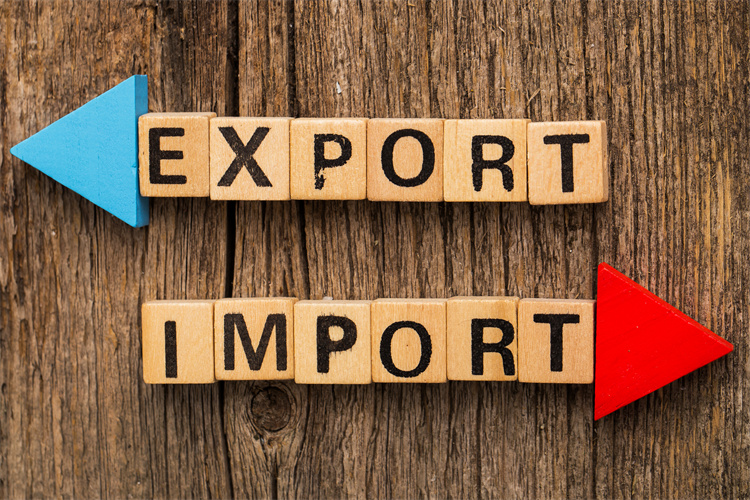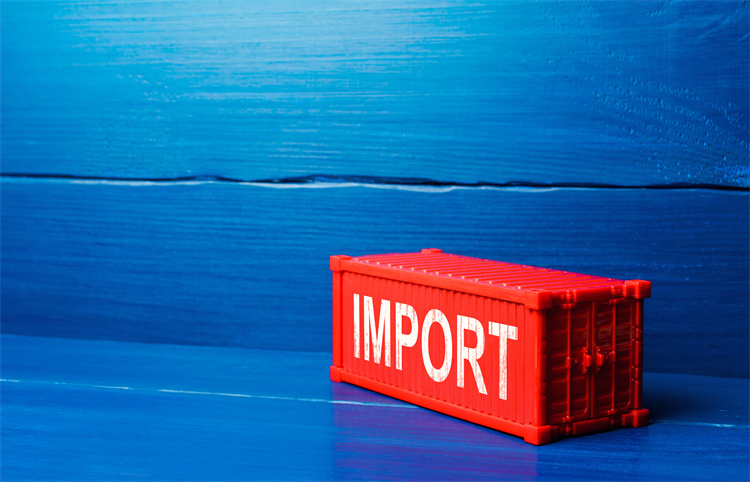Corporate Customs Compliance: Ensuring Smooth International Trade

Customs compliance plays a vital role in international trade. Corporations face numerous challenges, including complex import and export regulations, border security measures, and the need to navigate multiple jurisdictions. Effective customs compliance helps prevent delays, penalties, and reputational damage. Businesses benefit from cost savings, faster import clearance, and predictable costs. Improved customs compliance also enhances supply chain efficiency and customer satisfaction.
Understanding Customs Compliance
Definition and Scope
What is Customs Compliance?
Customs compliance involves adhering to all regulations and laws governing the import and export of goods. Companies must ensure accurate declarations, proper documentation, and timely payment of duties. Customs compliance also includes meeting specific import permit requirements. Businesses often rely on specialized customs service providers to navigate these complexities. However, even with expert assistance, mistakes can occur.
Key Regulations and Laws
Customs regulations vary by country but share common principles. The Harmonized System (HS) Codes classify goods for tariff purposes. The World Trade Organization (WTO) sets international trade rules. National laws, such as the German Customs Law, address specific compliance issues. Companies must stay updated with changes in these regulations to avoid penalties and delays.
Importance of Customs Compliance
Legal Implications
Non-compliance with customs regulations can lead to severe legal consequences. Authorities may impose fines or seize goods. Legal battles can arise from incorrect declarations or missing permits. Customs consultants play a crucial role in interpreting legal documents to ensure smooth import and export activities.
Financial Consequences
Failure to comply with customs regulations can result in significant financial losses. Penalties and fines can add up quickly. Delays in customs clearance can disrupt supply chains, leading to increased costs. Accurate customs compliance helps businesses avoid these financial pitfalls.
Reputational Risks
Reputation is vital for any business involved in international trade. Non-compliance can damage a company's reputation. Customers and partners may lose trust in a business that fails to meet customs regulations. Effective customs compliance enhances a company's credibility and reliability in the global market.
Key Components of Customs Compliance

Documentation and Record-Keeping
Essential Documents
Accurate documentation forms the backbone of customs compliance. Businesses must prepare several key documents for import and export activities. These include:
Commercial Invoice: Provides details about the goods, their value, and the terms of sale.
Bill of Lading: Serves as a receipt for the shipment and a contract between the shipper and carrier.
Packing List: Lists the contents of each package in the shipment.
Certificate of Origin: Verifies the country where the goods were manufactured.
Import/Export Licenses: Required for specific goods to meet regulatory requirements.
Customs authorities scrutinize these documents to ensure compliance with regulations. Errors or omissions can lead to delays and penalties.
Record-Keeping Best Practices
Effective record-keeping ensures smooth customs clearance. Companies should adopt best practices to maintain accurate records. These practices include:
Organized Filing Systems: Use digital systems to store and retrieve documents easily.
Regular Audits: Conduct periodic reviews to ensure all records are complete and accurate.
Retention Policies: Follow legal requirements for how long to keep records. This varies by country.
Automated Systems: Implement software to track and manage documentation. Automation reduces human error and improves efficiency.
Attention to detail in record-keeping helps prevent compliance violations. As one Customs Compliance Officer noted, "I pay meticulous attention to every aspect of my work, double-checking information, verifying documentation, and conducting thorough reviews."
Classification and Valuation
Harmonized System (HS) Codes
The Harmonized System (HS) Codes classify goods for tariff purposes. Accurate classification is crucial for customs compliance. Incorrect HS codes can result in incorrect duty payments and potential penalties. Companies must stay updated on changes to the HS code system. Regular training sessions for employees can help ensure accurate classification.
Customs Valuation Methods
Customs valuation determines the value of imported goods. This affects the amount of duty payable. Common valuation methods include:
Transaction Value: Based on the price actually paid for the goods.
Deductive Value: Based on the resale price of the goods in the importing country.
Computed Value: Based on the cost of production, including materials and labor.
Understanding these methods ensures accurate duty payments. Customs consultants play a crucial role in interpreting valuation rules.
Import and Export Procedures
Import Procedures
Import procedures involve several steps to ensure compliance. These steps include:
Pre-Arrival Processing: Submit required documents before the goods arrive.
Customs Declaration: Provide detailed information about the goods and their value.
Inspection and Examination: Customs authorities may inspect the goods to verify compliance.
Duty Payment: Pay any applicable duties and taxes.
Release of Goods: Once cleared, the goods can enter the market.
Following these steps helps avoid delays and penalties.

Export Procedures
Export procedures ensure goods leave the country legally. These procedures include:
Export Declaration: Submit information about the goods and their destination.
Licensing Requirements: Obtain necessary export licenses for controlled goods.
Customs Inspection: Authorities may inspect the goods before departure.
Transportation Arrangements: Ensure proper documentation accompanies the shipment.
Exit Confirmation: Confirm that the goods have left the country.
Adhering to these procedures ensures compliance and smooth international trade.
Strategies for Ensuring Compliance
Training and Education
Employee Training Programs
Employee training programs form the foundation of effective customs compliance. Companies must invest in comprehensive training to ensure employees understand customs regulations. Training should cover essential topics such as documentation, classification, and valuation. Regular workshops and seminars can keep employees updated on the latest customs laws.
A Compliance Officer emphasized the importance of training:
"Effective communication and problem-solving skills are crucial for navigating complex regulatory environments."
Training programs should include practical exercises and real-world scenarios. This approach helps employees apply their knowledge in actual situations.
Staying Updated with Regulations
Staying updated with regulations is vital for maintaining customs compliance. Trade regulations frequently change, requiring businesses to stay informed. Subscribing to industry newsletters and attending conferences can provide valuable updates. Companies should also establish a dedicated team to monitor regulatory changes.
Regular updates ensure that businesses remain compliant with new customs laws. This proactive approach helps prevent penalties and delays.
Technology and Tools
Compliance Management Software
Compliance management software streamlines customs compliance processes. These tools automate documentation and record-keeping tasks. Software solutions can track shipments, manage licenses, and ensure accurate declarations. Implementing compliance software reduces human error and improves efficiency.
Many businesses rely on advanced software to handle complex customs requirements. This technology provides real-time updates and ensures adherence to regulations.
Automated Systems for Documentation
Automated systems for documentation play a crucial role in customs compliance. These systems generate and store essential documents such as commercial invoices and bills of lading. Automation ensures that all required documents are accurate and complete.
Using automated systems minimizes the risk of errors and omissions. This approach enhances the efficiency of customs clearance processes.
Working with Customs Brokers
Role of Customs Brokers
Customs brokers facilitate the import and export of goods by handling customs procedures. Brokers possess specialized knowledge of customs regulations and procedures. They assist businesses in preparing and submitting necessary documentation. Brokers also ensure that shipments comply with all relevant laws.
Working with customs brokers can simplify the compliance process. Their expertise helps businesses navigate complex customs requirements.
Selecting a Reliable Broker
Selecting a reliable broker is essential for effective customs compliance. Companies should evaluate brokers based on their experience and reputation. A reliable broker should have a proven track record of successful customs clearances. Businesses should also consider the broker's knowledge of specific industries and regions.
Choosing the right broker ensures smooth customs operations and prevents compliance issues. A well-selected broker can significantly enhance a company's international trade activities.
Customs compliance remains crucial for international trade. Effective compliance prevents delays, penalties, and reputational damage. Prioritizing customs compliance reduces risk and saves time and money. Businesses benefit from cost savings, faster import clearance, and predictable costs. Accurate declaration and payment of duties and taxes ensure smooth trade operations. Companies must invest in training, technology, and expert support. Businesses should prioritize customs compliance to ensure successful international trade.
See Also
Discovering Triumph in International Trade with JUSDA
Revolutionary Approaches: Partner Connections in Global E-commerce Revealed
Resolving Logistics Growth Hurdles in an Interconnected Globe
